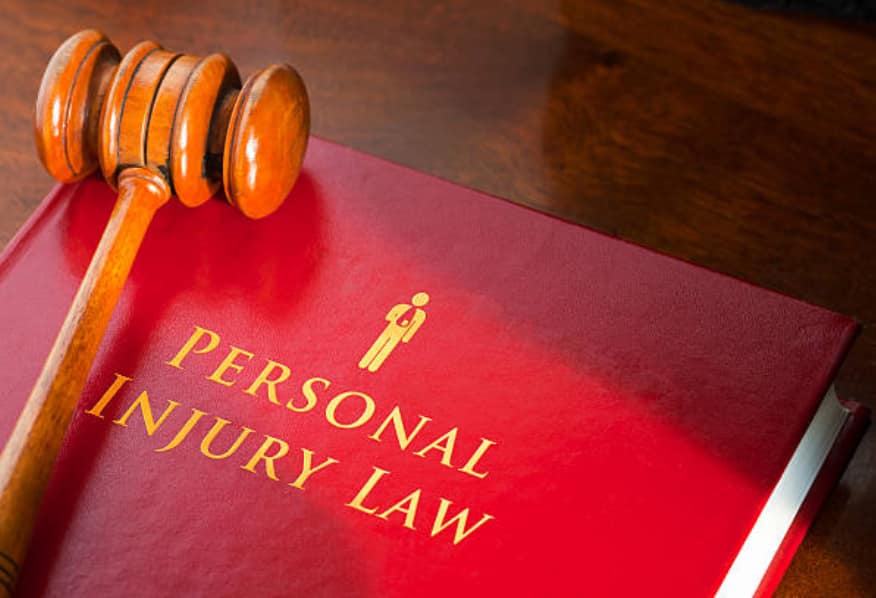Related Post
In the event of an accident in Tampa Bay, Florida, that caused you physical pain and emotional trauma, you should definitely go get the help of a personal injury attorney that puts you above everyone else and is ready to fight for your legal rights. Select is the best injury attorney in tampa bay area that you can rely on, and trust me when I say you’re going to need a lot of help after an accident. Here are several reasons to inquire the help of a personal injury attorney after an accident:
They Are Dedicated to Your Injury
Lawyers practice in many forms of legal defenses; in a way, they’re pretty similar to a doctor that trained in various medical practices. For example, there are many fields of medicine and doctors need to study specifically to be a specialist in that particular field, like an ER doctor, Internal medicine, Dentistry, etc., and lawyers are the same. In contrast, a personal injury lawyer specializes in personal injury cases.
When you got into an accident like having a bad fall, got involved in a car crash, or experienced workplace injury, you would want to have the help of a law firm that specializes in such cases, so you got all the assurance in the world that they know what they’re doing. They’re dedicated to your cause and will do absolutely everything within their knowledge and experience to ensure that you got a fair settlement.
They Can Take Care of Things While You Recover
After you’ve been a part of an accident like a car crash, for example, you would want to focus on recovering and cope with the stress of your loss before you can return to your normal everyday life. Sadly, the other party might not feel that way and proceed to sue you for a hefty sum of money. Now, what would you do in that situation if you don’t have a personal injury lawyer backing you up in your corner? A personal injury lawyer is the best help that you’re going to get in such circumstances because they are willing to work tirelessly to investigate, gather data, make a full legal defense, and formulate a winning strategy to help you reach the best outcome while you heal.
They Can Fight for Your Right

Just like Hulk Hogan, a personal injury lawyer will fight for what’s right and especially your rights. Now an insurance company’s move will always be to pressure you into accepting a low-ball claim, and they aim and strike your heart when you’re at your lowest point recuperating in the hospital. But when you have a personal injury lawyer by your side, they know the game well enough to counter the insurance agents’ settlement, and they’re not afraid to take it up to the court, so if you want to have someone fight for you legally, a personal injury attorney is your man!
As a musician, it is essential to know about copyright law. Copyright law protects the intellectual property of musicians. Before, many people were caught because they have been recording live concerts and used it. Here, we will talk about the things every musician should know about copyright law.
It Protects the Musicians Work
 Copyright law protects your work from unauthorized use by third parties. This means that someone cannot use your copyrighted material without your permission. This includes using your music without paying you royalties. It also includes using your song lyrics without giving you credit. Copyright law gives you the exclusive right to control how your work is used. Copyright law protects your work for your entire life, plus an additional 70 years after your death. This means that no one can use your work without your permission during this time period.
Copyright law protects your work from unauthorized use by third parties. This means that someone cannot use your copyrighted material without your permission. This includes using your music without paying you royalties. It also includes using your song lyrics without giving you credit. Copyright law gives you the exclusive right to control how your work is used. Copyright law protects your work for your entire life, plus an additional 70 years after your death. This means that no one can use your work without your permission during this time period.
It Establishes Various Rights
Copyright law establishes various rights for the creator of a work. These rights include reproducing, distributing, performing, and displaying the work. Copyright law also protects the use of a work in creating derivative works. This means that you have the exclusive right to create new works based on your copyrighted material. This is why it is important to register your copyright with the United States Copyright Office.
It Provides Means to be Compensated
 If someone uses your copyrighted material without your permission, you may be able to receive financial compensation from them. This is known as damages, and it can help you recover any losses that you have suffered due to the unauthorized use of your work. Today, many musicians have received large financial settlements from companies that have used their music without permission. This has been very beneficial for many musicians.
If someone uses your copyrighted material without your permission, you may be able to receive financial compensation from them. This is known as damages, and it can help you recover any losses that you have suffered due to the unauthorized use of your work. Today, many musicians have received large financial settlements from companies that have used their music without permission. This has been very beneficial for many musicians.
As a musician, it’s important to be aware of copyright law and how it affects your work. Understanding the basics of copyright will help you protect your music and ensure that you get paid for your hard work. Remember to keep good records and register your copyrights with the US Copyright Office so that you have the best chance of enforcing them if someone infringes on your rights. With a little knowledge and some planning, you can make sure that you are well-protected under copyright law. Have you ever had any issues with copyright infringement? Let us know in the comments below.
Law is a vast and diverse field that offers many career opportunities. From practicing law to working in the legal support field, there are numerous options for individuals interested in pursuing a career in law. In this blog post, we’ll explore some legal career types you may want to consider.
Legal Practice
 One of the most well-known careers in law is a legal practice. Lawyers are responsible for providing legal advice and representation to clients in various areas, including civil and criminal litigation, corporate law, intellectual property law, and more.To become a lawyer, you must complete a law degree and pass the bar exam in your state or country. Once you have your license to practice law, you can work in various settings, including law firms, government agencies, and corporations.
One of the most well-known careers in law is a legal practice. Lawyers are responsible for providing legal advice and representation to clients in various areas, including civil and criminal litigation, corporate law, intellectual property law, and more.To become a lawyer, you must complete a law degree and pass the bar exam in your state or country. Once you have your license to practice law, you can work in various settings, including law firms, government agencies, and corporations.
Legal Support
In addition to legal practice, there are numerous legal support careers. Legal support professionals work behind the scenes to help lawyers and law firms with tasks such as research, document preparation, and administrative tasks.Some examples of legal support careers include paralegals, legal secretaries, law librarians, and court reporters. These careers typically require specialized training or certification but can offer rewarding and fulfilling opportunities for individuals interested in law.
Compliance and Regulatory Affairs
Another type of career in law is in compliance and regulatory affairs. These professionals ensure that individuals and organizations follow legal and regulatory requirements in their operations.Some examples of careers in compliance and regulatory affairs include compliance officers, environmental and safety specialists, and regulatory affairs managers. These careers often require specialized knowledge of specific areas of law and regulation and strong analytical and problem-solving skills.
Legal Education
For individuals interested in teaching and academia, a career in legal education may be a good fit. Legal educators work in law schools and universities, teaching courses in various areas of law and conducting legal research.To become a legal educator, you typically need a law degree and often a graduate degree in law or a related field. In addition to teaching and research, legal educators may participate in policy development and advocacy related to legal issues.
Alternative Careers in Law
Finally, numerous alternative careers in law may be of interest to individuals with a background in law. Some examples of alternative careers in law include legal technology professionals, legal journalists, and legal consultants.These careers often require specialized knowledge and skills in technology, journalism, or business, but they can offer unique and rewarding opportunities for individuals with a legal background.In conclusion, the law is a diverse and dynamic field that offers many career opportunities. Whether you’re interested in legal practice, legal support, compliance and regulatory affairs, legal education, or alternative careers in law, there are numerous paths to pursue. By exploring your options and identifying your strengths and interests, you can find a fulfilling and rewarding career in law that aligns with your goals and aspirations. There are numerous opportunities to explore, whether you’re just starting out in your career or considering a career ch




